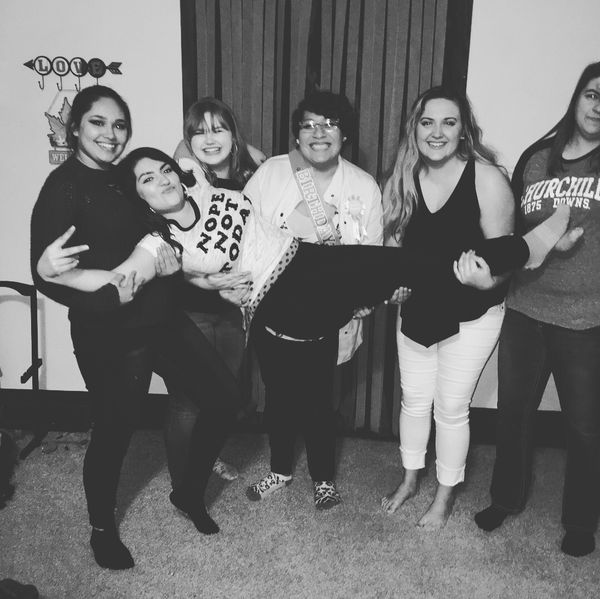Michael Phelps, 31 year old American competition swimmer, won his 19th gold medal on Sunday, August 7th at the 2016 Olympics held in Rio. Now having acquired 23 medals, Michael Phelps is considered the greatest Olympian of all time. Prior to this year's Olympic Games, however, Phelps struggled with his mental health and substance abuse covertly, causing him to want to give up on his career and life.
Phelps began swimming at the age of seven, after first being diagnosed with Attention Deficit disorder (ADHD), using the sport as an outlet for his exuberant energy. Showing undeniable potential at such a young age, breaking record after record as he rose through age categories, Phelps exceeded in his sport early on and was selected for the US swim team at just 15 years old. He competed in his first Olympics in Sydney in 2001 and was the youngest American swimmer to participate in almost 70 years. A year later, acquiring victory in the 400m freestyle at the 2001 World Aquatics Championship, Phelps became the youngest male swimmer to break a world record, foreshadowing the success of his years to come (Michael Phelps).
After the 2012 Olympics in London, earning six more medals, adding up to 22 total including 18 golds in his career, Phelps was recognized by the world as the prevailing, unrivaled champion - the Usain Bolt of his sport.
Phelps was now the most decorated Olympian of all time. With each achievement he became more well-known and more wealthy. He was a brand of his own; his life was turned into a cinematic American athletic dream. The
Even after his historic performance, Phelps announced his retirement following the Olympic games in London. “After ’08, mentally, I was over," said Phelps. "I didn’t want to do it anymore... But I also knew I couldn't stop."
At this time, the Olympian was struggling with his mental health and substance abuse behind closed doors. “I went in with no self-confidence, no self-love," Phelps explained regarding the 2012 Games in an interview with "Dateline" (Upworthy).
In September of 2014, Phelps was charged with his second DUI offense - the catalyst to the realization that he needed help (Yahoo). "I was [in] the lowest place I’ve ever been," he told "Dateline." "Honestly, I sort of, at one point, I just - I felt like I didn't want to see another day. I felt like it should be over" (Upworthy).
Phelps checked himself into a rehab clinic in October of 2014. Through treatment and therapy, he was able to address the underlying issues affecting his health, including struggles with relationships and "a turbulent relationship with his father dating back to childhood" (Upworthy).
During his time at rehab, Michael began to develop mental clarity and stability that he long lacked; an achievement far greater than an Olympic medal. "I saw myself as the athlete that I was, but not as a human being," Phelps said, explaining his newfound realizations and understandings of his inner turmoil. "I would be in sessions with complete strangers who know exactly who I am, but they don’t respect me for things I’ve done, but instead for who I am as a human being."
“I feel like I’m a different person now,” Phelps said, explaining his transition. “Maybe I’m nicer. I like to be able to interact with people, and before I don’t think I would have welcomed that. I’m just in a happier place with where I am in my life. For so long, I thought of myself as this kind of robot. Now that I see myself as a human being, it changed my life.”
During his recuperation, Micheal began to work out again, coming out of retirement and preparing to train for this year's Summer Olympics with his eyes on the prize (Upworthy). He stopped consuming alcohol, held himself accountable to attending every practice and training session (which he constantly struggled with in the past years), and put forth all of his effort towards being the best (Sports Illustrated). "I'm having fun again," he explained. "This is something I haven't had in a really long time."
"It’s about looking in the mirror and actually being happy with who you see," said Phelps. "A lot of people in the world have a hard time doing that."
At any point in time, 3 to 5 percent of adults suffer from major depression, and the lifetime risk is about 17 percent. As many as 2 out of 100 young children and 8 out of 100 teens may have serious depression (ADAA).
Michael Phelps, through his struggle, found strength and clarity in the support of his friends and family, and through seeking assistance when it was needed. He didn't let his mental illness and/or inner strife define who he is or what he's capable of. Because of his bravery, courageousness, and perseverance both physically and mentally, he's now the most decorated Olympian of all time, with a record of 23 total medals. More importantly, though, he has achieved peace within himself.
Phelps, now, not only stands as a role model for aspiring athletes across the world, but also as a symbol of courage and support for those who endure mental illnesses throughout their lifetime. He is a token of guarantee that things do get better, and that one isn't defined by their diseases/disorders.
“I’m back to being the little kid who once said anything is possible,” says Phelps, and he has proven that anything is.
If you or a loved one suffers from depression, anxiety, or suicidal thoughts, help is always available. Don't be afraid to reach out. Things do get better.
1-212-673-3000 - 24 hr Crisis Hotline
1-800-273-8255 - 24 hr Suicide Prevention Lifeline





















